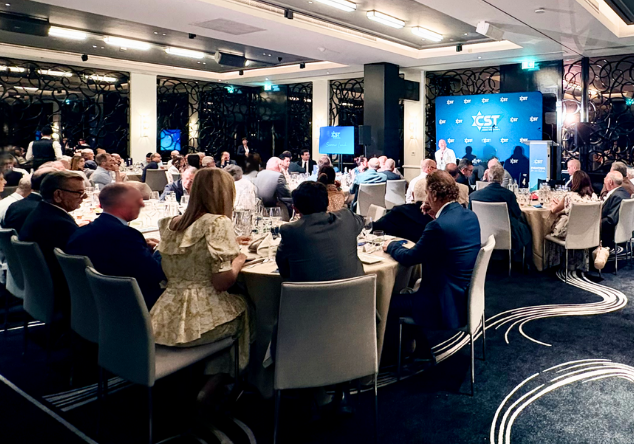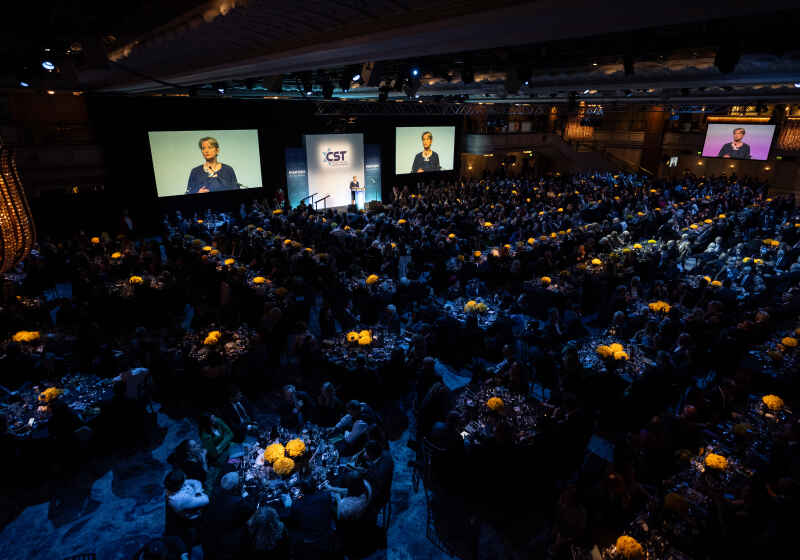CST Blog
Lord Haw Haw: then and now
8 January 2010
The Winter 2009 edition of Common Ground, the magazine of The Council of Christians and Jews, examines the subject of antisemitism. The magazine itself is not yet available online, but it begins with an intriguing editorial bv CCJ's Chief Executive, David Gifford, and an overview of antisemitism in 2009 by CST's Director of Communications, Mark Gardner.
Both articles are reproduced below. They are very different from each other, but David Gifford's questions about the motivations and life of William Joyce (better known as Nazi propagandist "Lord Haw Haw") are highly pertinent, especially when contemplated in the context of the shifting sands of contemporary antisemitism.
Editorial
"I learnt recently that in the splendid library of Lambeth Palace in London is the transcript of a 1942 BBC broadcast interrupted by William Joyce, "Lord Haw Haw." The Council of Christians and Jews had just been founded by two foresighted and courageous men, Archbishop of Canterbury, William Temple and Chief Rabbi, Joseph Hertz. The BBC newsreader was announcing the establishment of CCJ and was unaware of a "voice over" - an interruption - by Lord Haw Haw broadcasting from the Reichsministerium für Volksaufklärung und Propaganda (Reich Ministry of Public Enlightenment and Propaganda) in Germany. Haw Haw mocked the vision of these two men, with the Church of England coming in for equal scorn. Born in the US Haw Haw grew up in Ireland and was raised Roman Catholic. He had been a high ranking member of the British Union of Fascists but fled for Germany in 1939, to avoid internment. he was hanged for treason in 1946.
Perhaps in William Joyce's sad and disfunctional life and history lie pointers of why people fall into the evil of antisemitic acts and discourse; a confused identity, an innate prejudice, a faith background where antisemitism may be implied in prayers, liturgy or exegesis, adherence to radical political ideology. Very sadly and worryingly we see a rise in antisemitism today in the UK and across Europe. In this issue of Common Ground our contributors give us facts and figures, as well as narratives of their knowledge and experience of the reality that antisemitism, this "light sleeper", has awoken and is active again.
CCJ was established in 1942 with the support of all the major Christian and Jewish leaders to eliminate antisemitism and all forms of religious and racial hatred and discrimination - no less!
Our writers are telling us that our job is not yet done.
Antisemitism in Britain: 2009. We asked Mark Gardner of the Community Security Trust to "unpack" antisemitism for us.
"Few topics in Britain today arouse passions as does antisemitism and its causes.
This is not just a philosophical matter. Antisemitism has always been a warning about escalating hatreds and tensions that will, sooner or later, affect all of society: not just Jews.
Firstly, we need a sense of proportion. Antisemitism should not define the British Jewish experience. This is a good place to be Jewish and we enjoy a liberal democratic society, with all the freedoms and opportunities for growth that implies. Over half of all Jewish children of school age attend Jewish schools, whilst Jewish cultural activity is flourishing.
Nevertheless, antisemitism is worsening. The Community Security Trust (CST) works with British Jews and others to protect and promote the positives of Jewish life from the negative threats. CST combines prevention and cure: a strong physical deterrent; the cherishing of faith and seizing opportunities to understand and overcome the psychological barriers that fuel antagonism and hatred.
Crucially, CST also provides a means of reporting antisemitic hate crimes; 609 such incidents were recorded during the first half of 2009: more than the 598 recorded in the whole of the worst year (2006) on record. This was due to the antisemitic reaction to Israels war with Hamas in Gaza and Southern Israel. Overseas events trigger anti-Semitic surges in the UK.
Antisemitism is highly nuanced, and must be properly understood in order to be combated. It does not come from one source either the Muslims, the left or the right. It is mistaken to use such generalities: antisemitism from, say, a Muslim source, certainly does not mean that all or even most Muslims are antisemitic, any more than neo-Nazi antisemitism means that most white people hate Jews.
Often, antisemitic words and ideas are used by people who do not mean to be antisemitic. Subconscious ready made ways of thinking emerge when Jews or Israel are in the news, and it is a sensitive business. For example, there is an extreme political position - once rooted in far left and extreme Islamist groups but now more widespread - that blames Zionism for all manner of world problems. For many observers, such anti-Zionism abuses the word Zionist in the same way that open antisemites abused the word Jew in previous centuries.
An angry debate surrounds the growing campaign to boycott Israel. This carries the unavoidable danger that it will lead to the social exclusion and isolation of the vast majority of British Jews: who ultimately defend Israels right to exist and therefore fail the anti-Israel test required of them by the boycotters.
Most Jews understand racism well enough to know that where one deserves to be excluded from society, one will end up being physically removed from society. The fact that such exclusions are in the name of anti-racist anti-Zionism is cold comfort.
Most serious is the threat of a terrorist attack against the Jewish community. Jews around the world have been subjected to such attacks since the 1960s and 1970s, culminating in the murder of 85 people in an Iranian-linked truck bombing of the Buenos Aires Jewish community centre in 1994.
The terrorist threat is of course one that faces all of society: but it is a stark illustration of the manner in which antisemitic ideologies and threats confront both Jews, and decent people everywhere. The fight against antisemitism, just like the fight against terrorism, is part of a wider fight in defence of democratic values and against extremism, social division, racism and bigotry. The Jewish community knows that it has many friends and allies in these challenging times; and it knows that CCJ is in the forefront of those partners at the time when they are most needed."
Read More

Antisemitic Incidents Report January-June 2025
6 August 2025

CST Summer Lunch 2025
25 June 2025
CST Annual Dinner 2025
26 March 2025
